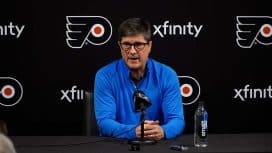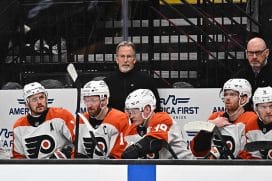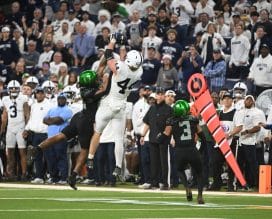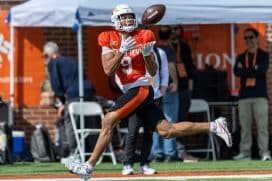Union
FYI, Alejandro Bedoya Is an Iconic Philadelphia Sports Captain
By Siobhan Nolan, Contributing Writer
Coming into the Union, then-29-year-old Alejandro Bedoya had an extensive international resume. He had played for Swedish clubs Orebro SK and Helsingborgs IF, Scottish club Rangers FC, and French club FC Nantes, along with having made 55 appearances for the United States men’s national team up to that point. Upon signing, someone with such diverse and extensive experience seemed natural for a captain’s distinction. Naturally, it wasn’t long until he received the armband.
Bedoya is everything one could ask for in a captain. He’s disciplined, mature, vocal, and commands respect from his teammates. Not only is he active in the community outside of the Union, but he is enthusiastic and loyal to the team itself. He leaves it all on the field every game, holds the midfield together, and keeps his teammates in line. You can always count on Bedoya to be the leader that he needs to be.
One thing about Bedoya that shouldn’t go as unappreciated as it does is the fact that he is both loyal to his team and can still play like he’s in his prime. Carson Wentz had a dip in form that was so debilitating that he departed Philadelphia for the Indianapolis Colts—which isn’t to say that Wentz wasn’t loyal and appreciative of his time in the city, but regardless, he still lef). Claude Giroux, who has probably been the most well-known Philadelphia captain since he was first given the distinction in 2013, has been a Flyers player since he was drafted in 2006, but even the most diehard Giroux supporters can’t deny that he isn’t playing as well as he used to.
However, Bedoya, who is 34 years old (which is the twilight of most soccer players’ careers), is still putting in admirable shifts in the midfield and proving that his captain’s armband isn’t the only thing keeping in the starting lineup. He is the kind of player and locker room presence that the Union won’t ever be able to truly replace. Bedoya is personable and a friend to his teammates, but isn’t afraid to call them out when they act rashly. Even when he does, he doesn’t do so in an accusatory or condescending way.
Take, for example, when he commented on the red card Jose Martinez received against NYCFC, which incited a further two-game league suspension for Martinez. Bedoya simply acknowledged that Martinez “[has] just got to be smarter” and that Martinez’s actions were “unacceptable.” It was public accountability without the spectacle of a harsh criticism of his teammate. The Union aren’t focused on shock value and making headlines off the field—they let their playing do the talking.
Perhaps the most enviable quality of Bedoya’s is the fact that he doesn’t try to hog the glory on the field. As the captain for four years and one of the most beloved Union players in the club’s history since his arrival, it would be easy for the outpouring of support to go to his head. But he understands that Philadelphia fans can, and will, rescind their love if he doesn’t do his job well, and therefore keeps his head down to put in the best performances he can in every game he features in. Obviously, he won’t be spectacular every time, but he makes sure that nobody can accuse him of not putting in the work.
It’s disappointing that Bedoya probably won’t receive the recognition he deserves beyond the Union’s little bubble in Chester, but that doesn’t deter him from being a superb leader. It’s such a cliche at this point, but Bedoya is the personification of the sentiment that the name on the front of the jersey is more important than the one on the back. He plays for the Union, not just for Alejandro Bedoya. He plays for the betterment of his club, not just himself. And even if 700,000 people don’t show up to the Union’s Broad Street parade when they win the MLS Cup, that won’t matter to him. What matters is that there will be another trophy in the Union’s trophy cabinet, and he will be able to sleep at night knowing that the Union may have been born in 2008, but they truly came alive under him.





